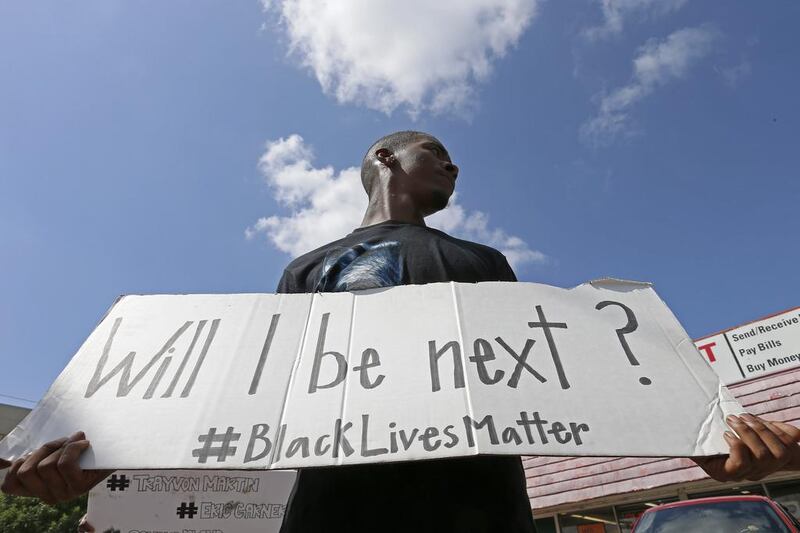Allah says in the Quran: “I have made you into nations and tribes, so that you may know one another.” Do you notice that there is no reference to having to fear one another?
And yet, one thing that has become so apparent during the aftermath of the 2012 shooting of African-American youth Trayvon Martin by a white neighbourhood watch supervisor, George Zimmerman, is how much Americans seem not to want to know each other and are afraid.
In the past few days, I keep hearing the voice of Diamond Reynolds, who live-streamed the aftermath of the shooting by police of her partner Philando Castile, saying: “Jesus, please, don’t tell me that he’s gone.”
And then, I hear her four-year-old daughter tell her to “stay calm”.
Those who have marched in the streets under the slogan Black Lives Matter should be asking: when will black lives matter? This may seem to reek of victimhood, but isn’t this really what they mean?
Racism affects both the victim and the perpetrator. Each person’s heart is cracked and shrunk by the fear of someone else.
It’s been 11 years since the floods of Hurricane Katrina washed away the veneer of whiteness from the landscape and the world saw how black America really is.
Those bodies floating in the waters of New Orleans should have been enough to make sure that the lives of African Americans were improved. But no, they were called refugees, and corralled into a football stadium without water, food or proper sanitation.
It has not always been this way. It could be argued that the Black Power movement of 1960s and 1970s gave African-Americans some historical respite. There were films and literature that showed African-Americans as regular people, people with pride, and how they were doing their best to get over the wall of racism.
The poet Nikki Giovanni told African-Americans they “could fly like a bird in the sky”; singer James Brown implored those same people to “say it loud, I’m black and I’m proud”.
Similarly, today, if Barack Obama can become president, then why are so many black men and women being shot and killed?
The answer to that question is centuries old, but here are two very important events. In 1768, a regiment of British soldiers shot into a crowd of protesters killing Crispus Attucks, an African-American man. Seven of the nine soldiers were acquitted, and two were given the punishment of thumb branding. In 1857, Dred Scott, a Missouri slave, unsuccessfully sued for the right to American citizenship. It was declared by the Supreme Court that “the fixed and immutable truths of the Dred Scott decision [were] to regard as enemies to the peace of the country, and indeed to the safety of society, all those who ... would render liberty for the white man impossible”.
Now the killing of African-Americans is available to live-stream on your smartphone, and these deaths show no sign of stopping. And I ask myself, again: now that the world sees the truth, when will black lives matter?
Maryam Ismail is a sociologist and teacher who divides her time between the US and the UAE





